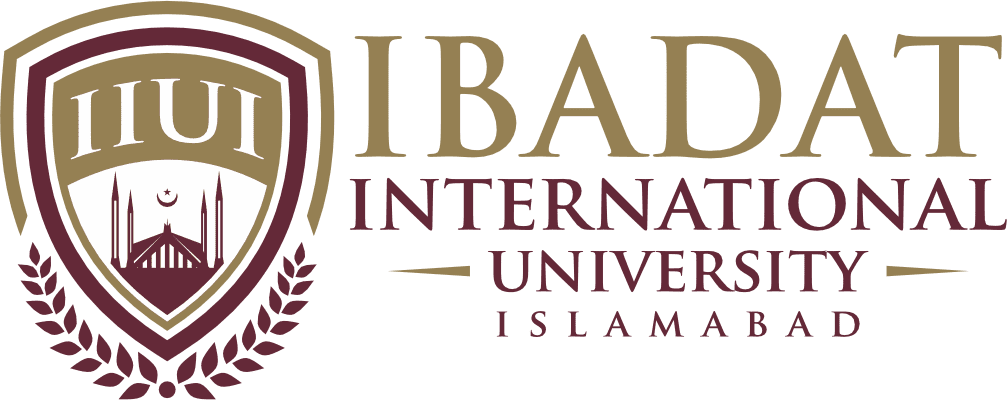IBADAT INTERNATIONAL UNIVERSITY ISLAMABAD
Sustainable Development Goals
Times Impact Rankings
The Times Higher Education Impact Rankings are global performance tables that assess universities against the United Nations’ Sustainable Development Goals (SDGs). The indicators are calibrated to provide comprehensive and balanced comparison across four broad areas: Research, Stewardship, Outreach and Teaching. The Impact Rankings are inherently dynamic; they are growing rapidly each year as many more universities seek to demonstrate their commitment to delivering the SDGs.
To start with SDG 2 – ‘Zero Hunger’, the IIUI stands among best 101-200 globally. This is a huge achievement of the University to get a notable rank on this particular SDG in Pakistan where hunger is considered among the top issues of the country. As per World Food Programme (WFP) country brief, 20.5% of Pakistan’s population is undernourished and 44% of children under 5 years of age are facing stunted growth due to malnourishment. IIUI showed its commitment towards sustainability while combating the pressing challenges of food safety and security.
Furthermore, IIUI shines with glory by taking a place among the top 101-200 universities worldwide in SDG 3. This is an exemplary achievement as Pakistan faces a double burden of disease with 7.6% of the population affected by hepatitis B and C, the 5th highest tuberculosis burden globally, and areas endemic to malaria. HIV prevalence stands at 21.0%, with 77.0% of drug injectors using sterile equipment. The health system is often disrupted by crises such as floods, droughts, earthquakes, manmade emergencies, and disease outbreaks.
Another gem is added to crown of IIUI’s achievements as in SDG 6: Clean Water and Sanitation, the university is ranked 101-200 across the world by THE Impact Rankings 2024. It has utmost significance as only 36% of the population of Pakistan has access to safely managed water, a problem that will likely get worse in the coming years due to rapid population growth and urbanization, as well as global warming, which is rapidly depleting the country’s primary water source—seasonal snow and ice melt from the mountains. Sanitation coverage also remains an issue as only 58% of the population has access to basic sanitation (Global Waters Organization).
Another remarkable achievement on individual SDGs is the performance of the IIUI on SDG 12 – ‘Responsible Consumption and Production’ where the University has sustained the notable scale of 101 – 200 internationally. This remarkable accomplishment not only aids the university but also the country, as in Pakistan, promoting responsible consumption and production is crucial to address environmental sustainability and economic challenges leading to sustainable growth.
To shed some light on SDG 13 – ‘Climate Action’, IIUI has done magnificently well. Times Higher Education Impact Rankings 2024 ranked the University among best 100-200 universities globally. The graveness of Climate Change can be determined by the fact that Pakistan is ranked as the 5th most vulnerable country to climate change according to the Global Climate Risk Index. This indicates that the country will experience increasingly severe extreme weather events, such as the catastrophic floods in 2022. The total damage from the floods is estimated at PKR 3.2 trillion (US$14.9 billion), with a total loss of PKR 3.3 trillion (US$15.2 billion). Floods and droughts have become regular occurrences, anticipated each year in Pakistan. Therefore, it is crucial to acknowledge the importance of climate-resilient settlement planning and to incorporate the dimension of climate change in development projects.
Moreover, IIUI has also pulled off an incredible achievement on SDG 17 – ‘Partnerships for the Goals’ where the University has taken a big leap and moved to a higher scale of 301 – 400 from 401-600 internationally. This is also a commendable achievement as being a developing country, Pakistan is highly committed to foster Sustainable Development Goals for a prosperous future and works in collaboration with well-known entities like UNODC, FAO, UNICEF, UNEP, WFP, World Bank, etc. to achieve this goal. In that way, IIUI aids the country by building multiple academic, medical, environmental, social and economic alliances with numerous national and international organizations for a sustainable future.
In conclusion, the IIUI has made significant strides in addressing critical issues such as food security, health, water conservation, responsible consumption and climate change, demonstrating a strong commitment to sustainability and the United Nations’ Sustainable Development Goals (SDGs). These initiatives and accomplishments reflect IIUI’s leadership in fostering sustainable development and contributing to a healthier, more resilient future for Pakistan.
